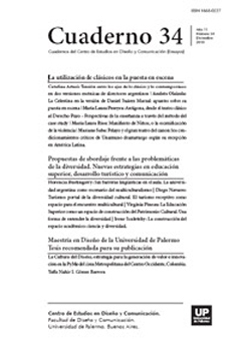Antígona, desde el teatro clásico al Derecho Puro. Perspectivas de la enseñanza a través del método del case-study
Resumo
O presente trabalho toma a teoria do “case – study” para aplicar-a de modo original ao ensino do Direito, através da
análise da obra de teatro clássico Antigona de Sófocles. É necessário desatacar que são cada vez mais frequentes os fatores que nos
demonstram do que os alunos encontram dificuldades para superar o abismo que medeia entre as abstrações teóricas e as situações confusas que se apresentam na realidade. Para cobrir essa carência formativa o método de estudo de casos é uma tentativa
de aprendizagem grupal orientado a extrair o máximo benefício possível das experiências e conhecimentos dos outros. Assim
Antigona como obra de teatro pode ser relacionada através de seu conteúdo com o mundo do Direito, procurando gerar no aluno uma preparação para o manejo inteligente do conhecimento que possui, afastando-se assim do mero acopio de informação.
Através do análise desta tragédia grega o aluno se encontrará na encruzilhada de duas correntes filosóficas do Direito: o Ius
Naturalismo ou Direito Natural e o Ius Positivismo ou Direito Positivo. Tal dicotomia lhe permitirá enfrentar-se a dilemas
reais que deverá resolver em sua vida profissional, por exemplo que sucede quando a Lei proíbe um ato que o sujeito
considera justo e moral, e essa proibição recai sobre pessoas amadas.
Referências
Aparisi, Ángela. (2001). “Objeción de Conciencia en la píldora del día siguiente”, Interrogantes.net. Disponible en: http://www.interrogantes.net/Angela-Aparisi-Objecion-de-conciencia-en-la-pildora-del-dia-siguiente-PUP180VI001/menu-id-29.html
Floria, Juan Navarro. (2004). El derecho a la objeción de conciencia. Buenos Aires: Ábaco.
Parodi, Ramón Carlos. (2002). El Derecho en el Mercader de Venecia. Ensayos de Derecho procesal. Lima: Huallaga.
Sófocles. (2008). Antígona. Traducción de Sergio Albano. Buenos Aires: Quadrata.
Wassermann, Selma. (1999). El estudio de casos como método de enseñanza. Buenos Aires: Amorrortu.
Los autores/as que publiquen en esta revista ceden los derechos de autor y de publicación a "Cuadernos del Centro de Estudios de Diseño y Comunicación", Aceptando el registro de su trabajo bajo una licencia de atribución de Creative Commons, que permite a terceros utilizar lo publicado siempre que de el crédito pertinente a los autores y a esta revista.


